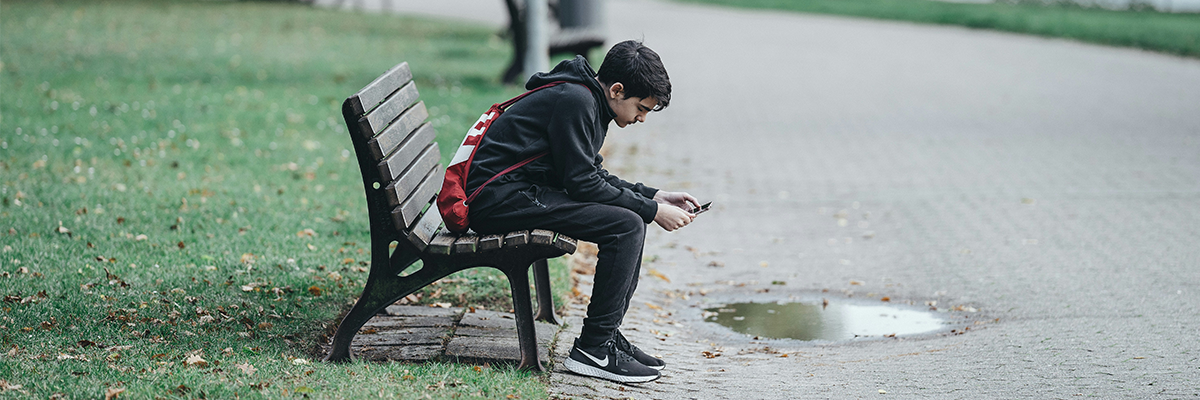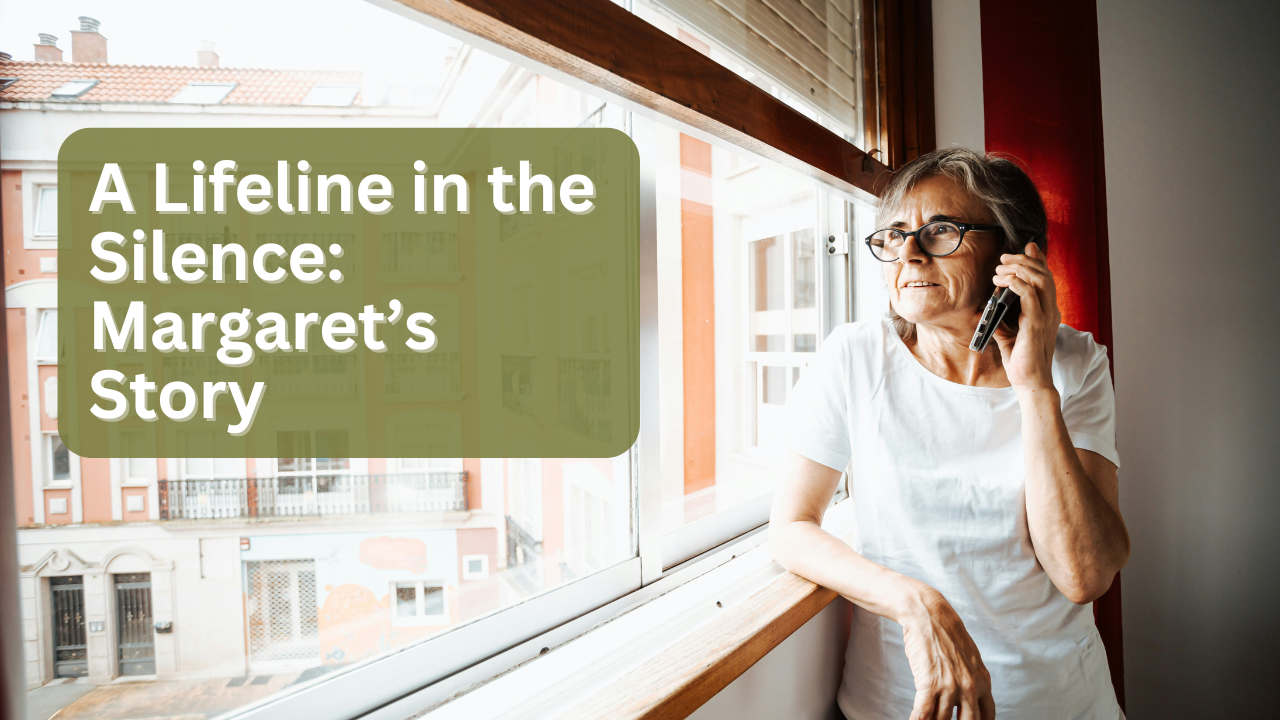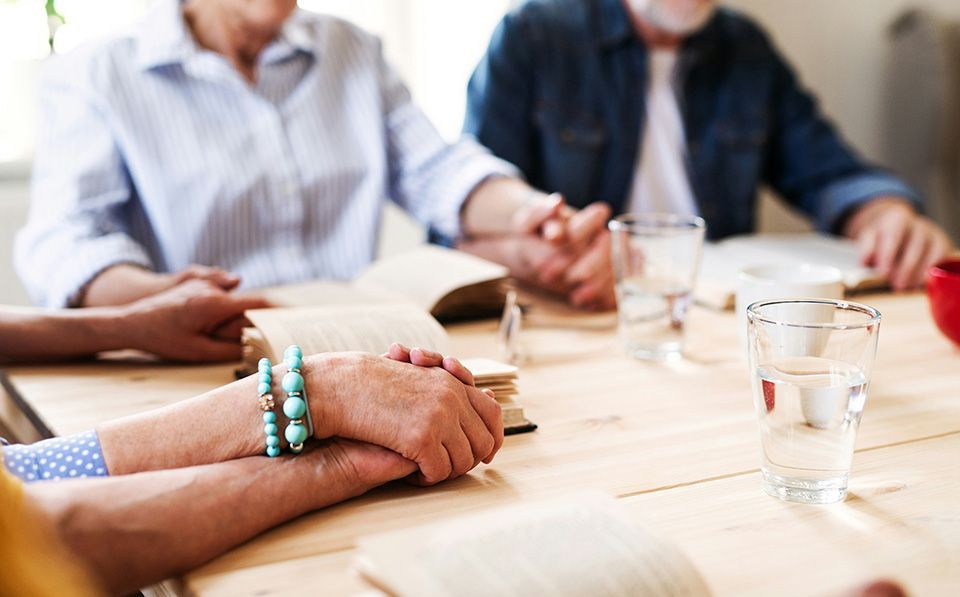PHONE FOR SUPPORT: 1-888-852-9099, 9 AM TO 9:00 PM, 7 DAYS A WEEK
LIVE CHAT: FRIDAYS AND SATURDAYS, 5 PM - 11 PM
The Faith Factor in Pandemic Resilience
By Bill Strom, Professor of Media + Communication, TWU
When WHO director-general Dr. Ghebreyesus declared COVID-19 a pandemic, some of us likely thought this will pass, and quickly so. Boy, were we wrong. We are now entering the eighth month of 2020 forever changed by the coronavirus.
How are you managing? How are you coping? Would you consider yourself “resilient”?
Resilience is the ability to bounce back after a traumatic event, the ability to adjust and find equilibrium after getting hit by a particular stressor. Sometimes stressors are short-term and huge—like having a hurricane wipe out one’s home. Other times stressors can be long-term and subtle—like the steady drip of a toxic relationship. In either case, resilient people find ways to cope, find resources to manage well, or at least well enough.
As a man of faith, I believe that I am doing okay due in part to God’s grace in my life, the hope He gives for the future, and the supportive friends that surround me.
As a researcher, I was curious if my experiences were shared by others. Therefore, back in early May of this year I conducted a study to test if people’s faithful views of relationships, and being actively engaged in church, were experiencing bounce-back resilience.
I found that people with thoroughly covenantal – not contractual – relationships, and deeply connected to church, were experiencing bounce-back resilience.
A contract view of relating depicts life as individuals trying to manage rewards and costs with friends and family members in order to find satisfaction. If one isn’t satisfied, the tendency is to argue, retaliate, or leave the relationship. You may know people who have cut off connection, or left a marriage, in such a way.
By contrast, a covenantal view sees life as people in communities who make and keep promises that will benefit themselves and their loved ones, and if one messes up, they look to faith-filled wisdom and their people to rebound and repair. To see more on these ideas, see here: The Relationship Project and More Than Talk.
In order to measure the degree people were experiencing resilience, I asked questions about how they were relating with the people in their home. In addition to questions about “weathering well”, I asked if they felt supported by their family, trusted their family, and were satisfied with life. Other questions tapped the dark side, such as their degree of aggression, anxiety, fear, and loneliness.
So what did the study show?
Covenantal Values a Resource for Resilience
The study found that holding covenantal views of close relationships related positively with signs of resilience, and negatively with signs of struggle, across the board. That is, covenantal values appeared to help people weather better, trust more, feel supported more, and rate life as satisfactory. At the same time, these people reported being less aggressive, less anxious, less fearful, and less lonely, than people who rated high on contract and low on covenant. I read these findings as support for the view that when we approach relationships with values such as sacrifice, service, and humility, we are better able to manage stressors, even pandemic lockdowns.
Attending Church a Sign of the Faithful Life
The results were especially eye opening for people who said they attend church three times or more per week (about 140 people), compared to those who do not attend church (about 150 individuals). Attending church that much might seem overkill to some, but doing so seemed to give life for people in this study. That is, avid church engagers were much more likely to be thriving during the lockdown, and struggling less. A quotation that captures why this may be true is in Resilience: The Science of Mastering Life’s Greatest Challenges by Southwick & Charney (2012, Cambridge University Press). They write:
Although it seems clear that religion is associated with positive physical and mental health as well as resilience, it is not known exactly why. It appears likely, however, that regular attendance at religious services may foster a number of resilience factors including optimism, altruism, and a search for meaning and purpose. In addition, as a member of a religious congregation, parishioners routinely interact with positive and resilient role models who encourage them to adopt meaningful social roles where they can give to others through acts of generosity… The support that practitioners receive may [also] come from God as well as from fellow human beings. (p. 79)
Summary
The upshot is this: When we belong to a community of warm-hearted, supportive people who share our faith, we have resources for finding meaning, balance, and love even when the world looks so different during the pandemic. An engaged covenant life delivers benefits to help weather the pandemic storm, and the mundane doldrums that may lay beyond.
I know this gives me reason to pause. It would be so easy to disconnect with my online church – and the face-to-face options that have just begun. Will I continue to meeting together, or let it slide? I am committed to community, and hope you are too.
Bill Strom, Professor of Media + Communication, Trinity Western University, Langley, BC
Need Someone to Listen?
Remember, you're not alone on this journey. If you're seeking a compassionate ear and a heart that understands, we encourage you to call us. Support is just a phone call away. See below for information on how to connect with us.
Discover Hope in Every Email
Join our community for uplifting stories, expert advice, and a path to healing.
Get the support you need
For Crisis or Emotional Support Call:
- 604-852-9099 in Abbotsford and Mission
- 1-888-852-9099 toll free throughout British Columbia
- If you are in a life threatening crisis, please call 911
Recent Posts
> End your Anxiety: A Prayerful Approach
> Renew your Strength – God's Promise to You
> Bible Verses that Help When You're Afraid | Telecare












